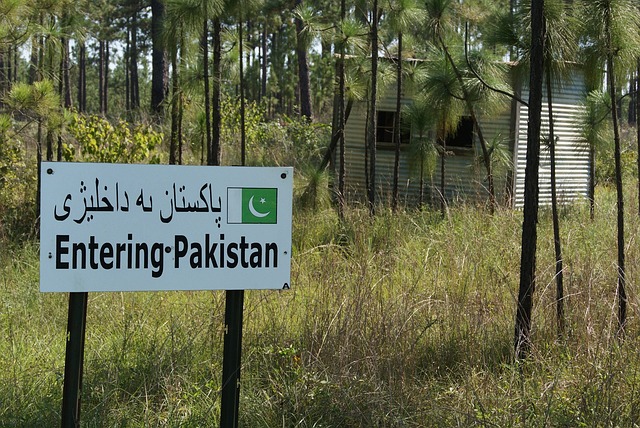Pakistan, China, and the Indian Election
Voting is underway in the world’s largest democracy with 970 million electorates, or 12% of the global population, involved in choosing their parliamentary representatives.
This year’s election is all about the leaders leveraging the country’s foreign policy achievements to sway voters.
Over the last decade, Indian voters have begun to treat foreign policy with the same zeal and seriousness as domestic issues. Previously regarded as politically skeptical and apprehensive, and content with a prudent and nonchalant strategic mindset, Indians are now increasingly interested in their country’s deepening relations with global powers.
Many Indian experts assert that fostering such collaborations is critical to becoming an economic powerhouse. This newfound enthusiasm and concern for foreign policy among the general public is assisting the government in fulfilling its ambition to play the key role in the global arena.
Many voters credit the current administration with India’s global rise. According to the 2023 Pew Survey, nearly seven in ten Indians believe their country’s influence is increasing on the global stage. The same Indians were optimistic about their country’s growing stature in the South Asian neighborhood.
This is reflected in advertisements and speeches by leaders, who frequently mention India’s rapidly growing GDP; India’s increased acceptance as an equal partner by the UNSC members; the deepening of ties with Arab Muslim nations; India’s central role in strengthening the G20, the QUAD, the IMEC, and the BRICS; and its timely assistance to marginalized nations during the COVID pandemic.
According to the 2023 Pew survey, the majority of respondents in 23 sample countries expressed a favorable view of India. As India strengthens its alliances with world powers, the general public hopes that this will lead to India gaining a veto-wielding seat on the UN Security Council.
In 2022, a joint survey by C-Voter and the Centre for Policy Research (CPR) discovered that more than two-thirds of Indians believe the country has performed better than expected in science and technology, space program, national security, and infrastructure.
Furthermore, six out of ten respondents were satisfied with how the government handled land disputes with China and Pakistan. Interestingly, only 14% of respondents considered Pakistan to be a trustworthy neighbor, with little room for improvement in bilateral relations in the coming years.
India is situated in a hostile neighborhood, and in order to become a major global economy, it must overcome opposition from its neighbors. Because of border disputes with Pakistan and China, India has prioritized infrastructure modernization in Ladakh and Kashmir, resulting in the construction of numerous airfields, bridges, tunnels, and highways.
The government has significantly reduced the frequency of terror incidents in Jammu Kashmir. As peace prevails, the construction of new infrastructure, roads, and tunnels brings more capital, enterprise and employment to Jammu and Kashmir.
Pakistan is concerned that the new viaducts will improve Indian access to Gilgit-Baltistan and Chitral. Both China and Pakistan disapprove of India using the Gilgit corridor to benefit from Central Asian markets and fossil fuel production hubs. Although thousands of divided families among the Balti and Ladakhi ethnic communities would like to see travel between Gilgit and Ladakh resume, this appears unlikely due to China’s strong objections.
The current Indian government views foreign policy as a critical component of its national vision, and showcases a strong desire to reclaim its historical role as a civilizational power rather than merely a colonial construct. The Indian leaders no longer regard strategic restraint as a cornerstone of foreign policy, and recent statements by both Amit Shah and Rajnath Singh reflect on India’s approach to crossing contemporary colonial borders to protect its interests.
This approach also suggests that the Indian leadership is committed to reclaiming Gilgit-Baltistan and Pakistan-occupied Jammu-Kashmir (POJK) through diplomatic and non-diplomatic means. External Affairs Minister Jaishankar recently stated that the world is ready for India to play a larger role. The Indian leadership wants the world to be psychologically prepared to embrace and support India’s claims to Gilgit and the POJK.
China’s growing aggression has made the West wary, prompting it to step up its wooing of India. India believes that unless China’s presence in Gilgit, Tibet, and Xinjiang is challenged, it will be unable to devise an effective deterrent strategy to limit China’s expansion in the Indian Ocean and Mediterranean.
Gilgit and Xinjiang give China direct access to the Arabian Sea and Indian Ocean, bypassing the Malakka corridor. It remains to be seen whether India has been successful in convincing the United States of this idea.
In the coming years, the Indian government is expected to focus even more on addressing Pakistan and China’s illegal presence in Gilgit-Baltistan and the POJK. With the world trying to deal with tense situations in Ukraine and Iran, the political landscape will only get more difficult from here.

Senge Sering is the President of Gilgit Baltistan Institute in Washington D.C.

